MercoPress. South Atlantic News Agency
Tag: China
-
Tuesday, February 1st 2011 - 13:31 UTC
Paraguay scheduled to open a trade office in Hong Kong

Paraguay the only Mercosur member with no formal diplomatic relations with China-Beijing, --since it only recognizes Taiwan--, is scheduled to open a trade office in Hong Kong (Peoples Republic of China) some time in the next few weeks.
-
Sunday, January 30th 2011 - 21:02 UTC
Chinese Mega City For 42 Million People

Chinese city planners have announced a plan to merge cities surrounding the Pearl River Delta to create the world’s largest metropolis with 42 million people
-
Sunday, January 23rd 2011 - 20:18 UTC
Spain-China Expand Alliance

Spanish Telefónica and Chinese operator Unicom agreed on Sunday to expand their alliance, both investing a further U$ 500 million in the other. Under the agreement, China Unicom could get a seat on Telefónica.
-
Wednesday, January 19th 2011 - 22:29 UTC
United States Welcomes China’s Success
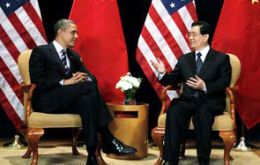
President Obama welcomed Chinese President Hu Jintao to the White House on Wednesday and praised China’s success.
-
Thursday, January 6th 2011 - 20:45 UTC
China to the rescue of Europe confirms purchase of Spanish sovereign debt

Chinese Vice Premier Li Keqiang has said Beijing is willing to buy about Euro 6 billion worth of Spanish public debt, Spanish newspaper El Pais reported on Thursday, citing government sources.
-
Thursday, January 6th 2011 - 12:42 UTC
Future Chinese PM promises full financial and economic support for Spain
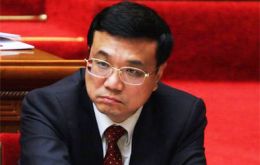
China has confidence in the Spanish financial market and will continue buying bonds issued by Spain’s government, Beijing’s Deputy prime minister said in an op-ed published in Madrid daily El Pais.
-
Thursday, January 6th 2011 - 11:10 UTC
As with Greece and Portugal, China comes to Spain’s rescue; 7.5 billion deals
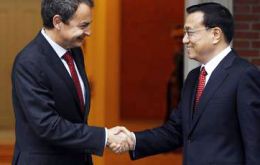
China and Spain signed this week business deals worth 7.5 billion US dollars, a welcome boost for Spain's recession-hit economy. Visiting Vice-Premier Li Keqiang also vowed to help Europe overcome its debt crisis (and support the Euro), as he started his three-nation European tour.
-
Sunday, January 2nd 2011 - 23:30 UTC
China reiterates commitment to combat consumer inflation
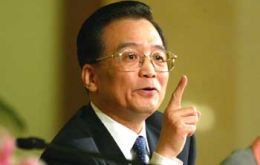
Chinese Premier Wen Jiabao vowed again to step up efforts to keep consumer inflation in check in 2011, state media reported on Sunday.
-
Monday, December 27th 2010 - 08:02 UTC
China raises interest rate determined to contain inflation, credit and property prices
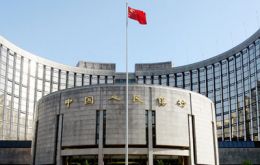
China’s central bank raised interest rates for the second time in less than three months as authorities ramp up efforts to curb borrowing, rein in property prices and tame inflation.
-
Monday, December 27th 2010 - 07:55 UTC
South Africa invited to join the BRIC group of emerging markets

South Africa has been formally asked to join the BRIC group of major emerging markets, comprising Brazil, Russia, India and China, according to a statement on the web from China’s Foreign Affairs minister Yang Jiechi.
